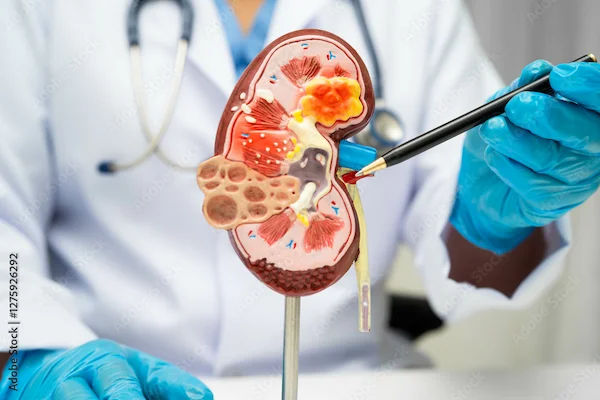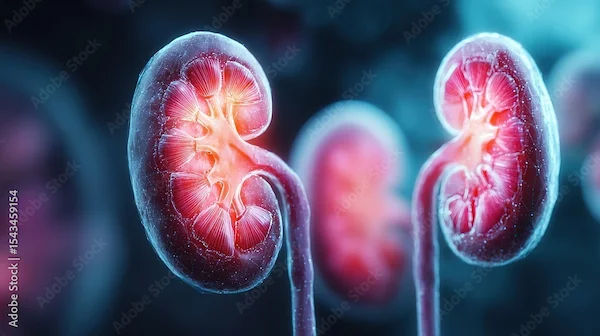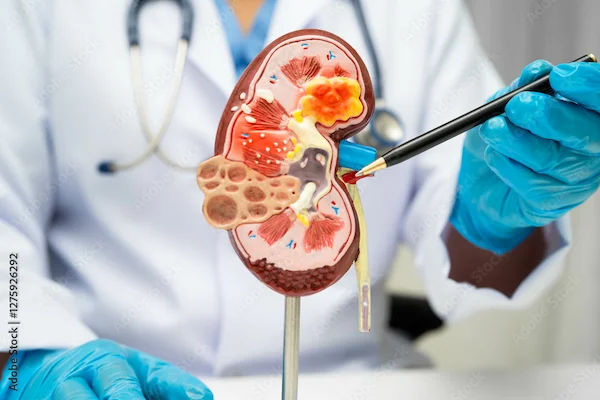Immunosuppressive Drugs After Kidney Transplant
Learn about immunosuppressive drugs after kidney transplant. Essential for preventing rejection, these medications are taken lifelong to ensure your new kidney functions well. Understand types and adherence.

Written by
Last updated on 17th Jul, 2025

Introduction
If you or a loved one has undergone a kidney transplant, you may have heard about immunosuppressive drugs. These medications are crucial for ensuring your body accepts the new kidney. However, they also come with certain risks and require careful management.
This article will help you understand:
What immunosuppressive drugs are and why are they necessary?
Common types of immunosuppressants?
Possible side effects and how to manage them?
Lifestyle tips to stay healthy while on these medications?
When to seek medical help?
Let’s dive in!
Why Are Immunosuppressive Drugs Needed After a Kidney Transplant?
Your immune system is designed to protect you from infections and foreign substances. However, after a kidney transplant, your body may recognize the new kidney as "foreign" and try to attack it—a process called rejection.
To prevent this, doctors prescribe immunosuppressive drugs (also called antirejection medications). These drugs weaken your immune system just enough to allow the transplanted kidney to function properly.
Key Points:
Without these medications, your body may reject the new kidney.
You will likely need to take them for the rest of your life.
Regular blood tests are necessary to monitor drug levels and kidney function.
Common Types of Immunosuppressive Drugs
There are several types of immunosuppressants, and your doctor may prescribe a combination of them. Here are some commonly used ones:
1. Calcineurin Inhibitors
Examples: Tacrolimus, Cyclosporine
How they work: They block immune cells that can attack the new kidney.
Side effects: High blood pressure, tremors, increased risk of infections, and kidney damage (if levels are too high).
2. Anti-proliferative Agents
Examples: Mycophenolate Mofetil (MMF), Azathioprine
How they work: They reduce the growth of immune cells.
Side effects: Stomach upset, diarrhea, low blood cell counts (increasing infection risk).
3. mTOR Inhibitors
Examples: Sirolimus, Everolimus
How they work: They slow down immune cell activity.
Side effects: High cholesterol, mouth sores, slow wound healing.
4. Steroids (Corticosteroids)
Examples: Prednisone
How they work: They reduce inflammation and immune response.
Side effects: Weight gain, high blood sugar, mood swings, bone thinning.
Your doctor will adjust doses based on how your body responds. Never stop or change medications without consulting them.
Consult Top Nephrologists
Possible Side Effects and How to Manage Them
While immunosuppressants are lifesaving, they can cause side effects. Here’s how to manage them:
1. Increased Infection Risk
Why?
A weaker immune system makes you more prone to infections.
What to do?
Wash hands frequently.
Avoid crowded places if possible.
Stay updated with vaccinations (but avoid live vaccines).
Report fever, cough, or unusual fatigue to your doctor.
2. High Blood Pressure & Diabetes Risk
Why?
Some drugs can raise blood pressure and blood sugar.
What to do?
Monitor blood pressure and sugar levels regularly.
Eat a low salt, balanced diet.
Exercise regularly (as advised by your doctor).
3. Kidney Function Changes
Why?
Some drugs can affect kidney function if levels are too high.
What to do?
Get regular blood tests to check drug levels.
Stay hydrated.
4. Weight Gain & Bone Weakness (from Steroids)
Why?
Steroids can increase appetite and reduce calcium absorption.
What to do?
Eat calcium rich foods (milk, yogurt, leafy greens).
Take vitamin D supplements if prescribed.
Engage in weight bearing exercises (walking, light strength training).
Lifestyle Tips for Kidney Transplant Patients
Taking immunosuppressants requires extra care. Here are some ways to stay healthy:
Diet & Nutrition
Eat a balanced diet with lean proteins, whole grains, and fresh fruits/vegetables.
Avoid grapefruit and pomegranate (they interfere with some immunosuppressants).
Limit processed foods, salt, and sugar to control blood pressure and diabetes risk.
Exercise & Physical Activity
Engage in moderate exercise (walking, swimming, yoga) to maintain a healthy weight and heart health.
Avoid contact sports (risk of injury).
Sun Protection
Some immunosuppressants increase skin cancer risk.
Always use sunscreen (SPF 30+) and wear protective clothing.
Mental Health Support
Mood swings (due to steroids) and stress are common.
Talk to a counselor or join a transplant support group if needed.
When to Seek Medical Help?
Call your doctor immediately if you experience:
Fever above 100.4°F (38°C)
Severe diarrhea or vomiting (can affect drug absorption)
Unusual swelling, pain near the transplant site, or decreased urine output
Signs of infection (cough, sore throat, wounds that won’t heal)
Final Thoughts
Immunosuppressive drugs are essential for protecting your new kidney, but they require careful management. By following your doctor’s advice, maintaining a healthy lifestyle, and staying alert for side effects, you can enjoy a better quality of life posttransplant. If you have concerns about your medications or need a consultation, Apollo 24|7 offers expert nephrology care and lab tests to monitor your kidney health.
Consult Top Nephrologist
Consult Top Nephrologists

Dr. Hareesha Babu K
Nephrologist
25 Years • MBBS, MD (General Medicine), DM (Nephrology),FASN, FRCP(Glasg), FRCP (Edin)
Bangalore
Kidney & Hypertension Care, Bangalore
(125+ Patients)

Dr. S Bipin Kumar
Nephrologist
13 Years • MBBS, MD General Medicine, DM, Nephrology
Rajamahendravaram
SG KIDNEY CARE, Rajamahendravaram

Dr. Luvdeep Dogra
Nephrologist
10 Years • MBBS, MD, DM (NEPHORLOGY)
Jaipur
Dr Dogras Health Clinic, Jaipur
Dr Ravi Jangamani
Nephrologist
16 Years • MBBS, MD General Medicine, DNB Nephrology
Bengaluru
Sushreya Skin and Kidney Clinic, Bengaluru
Dr Sahil Bagai
Nephrologist
15 Years • MBBS, MD General Medicine, DM Nephrology
Gurugram
Nephcare clinic, Gurugram
(50+ Patients)
Consult Top Nephrologist

Dr. Hareesha Babu K
Nephrologist
25 Years • MBBS, MD (General Medicine), DM (Nephrology),FASN, FRCP(Glasg), FRCP (Edin)
Bangalore
Kidney & Hypertension Care, Bangalore
(125+ Patients)

Dr. S Bipin Kumar
Nephrologist
13 Years • MBBS, MD General Medicine, DM, Nephrology
Rajamahendravaram
SG KIDNEY CARE, Rajamahendravaram

Dr. Luvdeep Dogra
Nephrologist
10 Years • MBBS, MD, DM (NEPHORLOGY)
Jaipur
Dr Dogras Health Clinic, Jaipur
Dr Ravi Jangamani
Nephrologist
16 Years • MBBS, MD General Medicine, DNB Nephrology
Bengaluru
Sushreya Skin and Kidney Clinic, Bengaluru
Dr Sahil Bagai
Nephrologist
15 Years • MBBS, MD General Medicine, DM Nephrology
Gurugram
Nephcare clinic, Gurugram
(50+ Patients)



_9.webp)
